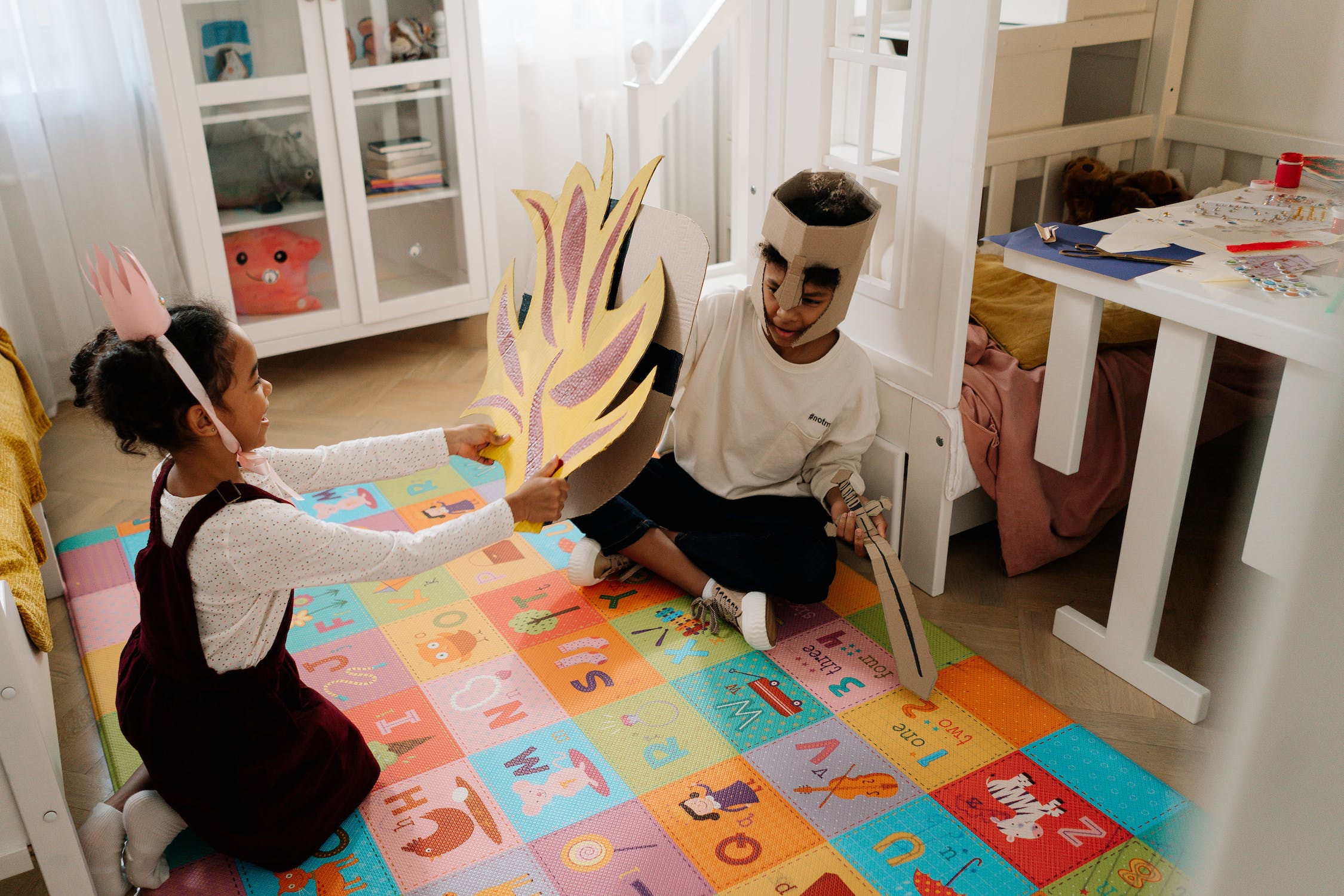Parenting Paradigm Shift: New Research Challenges Assumptions About Children’s Aggressive Imaginary Play
Parenting Paradigm Shift: New Research Challenges Assumptions About Children’s Aggressive Imaginary Play
Imagine your child wielding a cardboard sword, battling imaginary foes with all their might. It’s a common sight in the world of children’s play. But what if we told you that this aggressive pretend play might be more than just make-believe violence?
Children’s Aggressive Imaginary Play
Groundbreaking research from the University of Cambridge is turning the tables on our assumptions and revealing the fascinating ways in which children’s imagination can help them navigate complex social dynamics.

Unlocking the Mystery of Aggressive Pretend Play: Are Kids Actually Building Social Skills?
In the realm of children’s play, where cardboard swords become weapons of courage and the backyard transforms into a fantastical battleground, there lies a hidden purpose that’s only now coming to light.
The University of Cambridge’s groundbreaking research is uncovering a deeper layer to the world of aggressive pretend play – a layer that suggests children might be using these imaginary scenarios to build social and emotional skills.
Breaking the Mould: Why Do Kids Play Aggressively?
For years, parents and educators alike have puzzled over why children often introduce violent themes, like imaginary fighting or battles, into their play. The assumption was that it might be an outlet for their energy or a mere reflection of the media they consume. But what if there’s more to the story?
The research, conducted with over 100 children at a school in China, presents a surprising twist. Children who have playmates considered bad-tempered by their peers are significantly more likely to incorporate aggressive themes into their pretend play. This trend holds true regardless of whether the child is personally prone to anger or not.
Could it be that children are using aggressive pretend play as a way to rehearse strategies for dealing with fiery friends?
Dr. Zhen Rao,suggested that “It gives them a safe place in which to try out different ways of handling various difficult situations they might encounter up in real life.”
In a world where friendships are as complex as a maze, aggressive pretend play might be a tool for children to navigate the twists and turns of social dynamics.
While it’s tempting to label aggressive play as concerning behaviour, this study raises a possibility that it could actually be a sign of children’s developing social and emotional skills.
From Playmates to Emotional Strategists: How Kids Use Aggressive Pretend Play to Navigate Tricky Friendships
The conventional wisdom might lead us to discourage aggressive pretend play, viewing it as a reflection of negative behaviour. However, this research suggests a different perspective.
As parents and caregivers, it’s crucial to understand that children’s imaginative scenarios might be their way of grappling with real-life challenges.
Instead of stifling their play, it might be time to embrace it and engage in conversations about emotions, friendship, and conflict resolution. Perhaps aggressive pretend play is a way for kids to build a toolkit of strategies to deal with various personalities they encounter.
As we navigate the intricate realm of parenting, let’s keep an open mind and look beyond the surface of our children’s play. Could it be that the imaginary battles and make-believe conflicts are, in fact, stepping stones toward mastering the intricacies of human relationships?
In a world where every cardboard sword, every imaginary duel, and every playful shout holds a hidden lesson, it’s time for a new perspective on children’s imaginative play. Could we be witnessing the formation of tomorrow’s social architects? Are we overlooking the hidden potential of our children’s creative scenarios?
The power of play is immense, and its subtleties are far-reaching. It’s time to encourage conversations, embrace imaginative play, and foster a generation of emotionally intelligent individuals. As we uncover the mysteries of aggressive pretend play, we just might be unlocking the secrets to shaping compassionate, empathetic, and socially adept adults.
For more great articles and events see the Parent Newsroom.
Leave a Reply